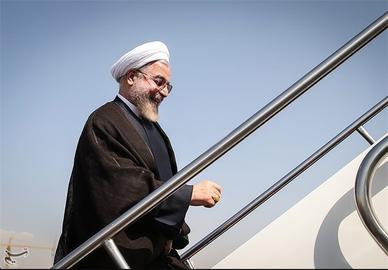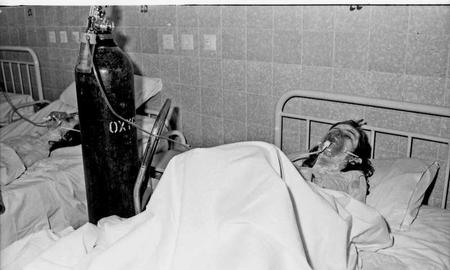In one of the first Iranian measures to counter fresh United States sanctions, President Rouhani has been forced to change the operator of his official plane to make it possible for him to travel to Switzerland and Austria.
On May 24, the US Department of Treasury put Dena Airways, the previous operator of the plane, on its terrorism sanctions list, based on a 2001 presidential order designed "to impede terrorist funding.” Dena Airways operated only one aircraft, a 19-year-old Airbus A340-300, used by the President of the Islamic Republic. In other words, the US indirectly targeted President Hassan Rouhani with its anti-terrorist sanctions.
The sanctions would have prevented Rouhani’s plane from receiving necessary services at airports during his visit to the two European countries. It was also possible that companies responsible for providing aviation fuel would have refused to refuel his plane so it could fly from Switzerland to Austria and back to Tehran.
A similar situation arose for the Iranian foreign minister a year earlier. In 2017, during one of Mohammad Javad Zarif’s visits to Germany, the companies that had been responsible for refueling the plane refused to do so because they were afraid the United States would issue them fines. In the end, the German government refueled his plane with army fuel tanks to prevent a diplomatic crisis.
Probably to avoid a repetition of what happened to the Iranian foreign minister, the government made sure Dena Airways was no longer the operator of the presidential plane before Rouhani flew to Switzerland. The operation was given to another company — although the company name has not been revealed, and was only referred to as an “Iranian government” airline.
Prior to Dena Airways' operation, Meraj Air operated the presidential plane. It was also put on the US terrorism sanctions list. In summer 2014, the US Treasury Department accused Meraj Air of carrying weapons for the government of Syrian President Bashar al-Asad and added the company to its blacklist. The plane Foreign Minister Zarif used for his foreign visits remained under the name of Meraj Air but a new company, Dena Airways, was established and assigned to operate the presidential plane for his travels to the UN General Assembly in New York, and to Italy and France.
Dena Airways had operated only one plane and the reason for its existence was only to bypass sanctions. The company was so new that it had no time even to design a logo. Until it came under sanctions, there were no accusations of it carrying arms or engaging in terrorist activities — and it is very unlikely that the official plane of the President of the Islamic Republic would have been used for such purposes. So the only possible conclusion for the sanctions is that the United States wanted to humiliate Rouhani and, effectively, put him under sanctions without incurring the disapproval of other countries.
By changing the name of the operating company, for the moment at least, Rouhani’s plane should not encounter problems when trying to access airport services during his visits to Switzerland and Austria and his flight back home. But it is likely that the US Treasury Department will add the new operating company to its blacklist as well. If this happens, then the Iranian president will be forced change the name of his official plane’s operating company for each and every flight or visit to another country.
More on the aftermath of Trump’s withdrawal from the nuclear treaty with Iran:
Guards Sell Missile Program to the Iranian Public, June 22, 2018
Iran and its Fleeting Dream of New Airplanes, June 13, 2018
Khamenei Calls for Immediate Action on Nuclear Enrichment, June 6, 2018
President Rouhani's Plane on the US Sanctions List, June 1, 2018
Decoding Iranian Politics: Ayatollah Khamenei’s Stance on the JCPOA, June 1, 2018
The Nuclear Deal: Will Khamenei Get What he Wants?, May 29, 2018
Khamenei’s Eight Conditions for Talks with Europe, May 25, 2018
Revolutionary Guards Respond to Pompeo’s “Empty Bluff”, May 23, 2018
The 12 Demands of Pompeo's New Iran Strategy, May 21, 2018
When Will US Sanctions Hit Iranian Oil Sales?, May 18, 2018
The JCPOA: A Missed Opportunity, May 17, 2018
The Future of Iran’s Economy as the US Bows Out of the Deal, May 10, 2018
What are Iran’s Choices as US Abandons the Nuclear Deal?, May 9, 2018
Khamenei’s “Heroic Flexibility 2.0”, May 9, 2018
What you Need to Know About Trump and the Nuclear Deal, May 8, 2018
visit the accountability section
In this section of Iran Wire, you can contact the officials and launch your campaign for various problems

























comments